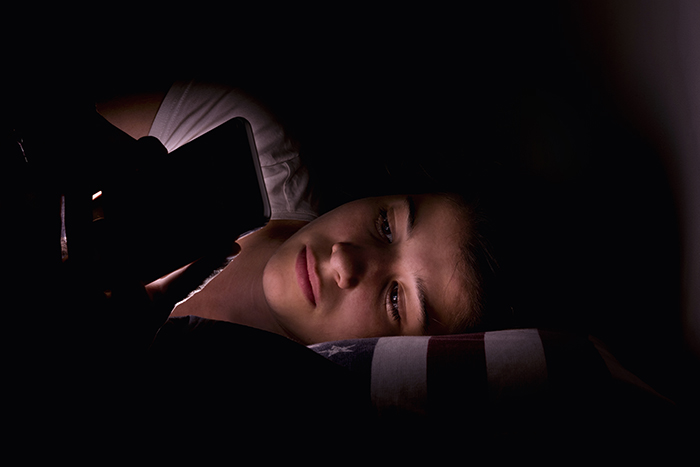Having recently seen the documentary, Screenagers: Growing Up In The Digital Age, I was particularly struck by this article in JAMA Pediatrics that summarized a recent systematic review of 20 studies conducted by the American Academy of Pediatrics (AAP). This meta-analysis of studies of students between the ages of 6 to 19 years – that occurred over a four-year time period (between 2011 and 2015) – tried to quantify the relationship between bedtime cell phone access and use, and kids’ overall diminished sleep quality. The link below provides more detailed information, but I’ve tried to summarize it here.
Given that sleep is so crucial to proper biopsychosocial development for children and adolescents, and also that sleep deprivation for this population has become a major public health concern, this study acknowledges how “ubiquitous” portable mobile devices have become for children and adolescents, and highlights that their “device access and use” at bedtime has a significant impact not only on their sleep duration but also on their overall sleep quality. Specifically, the study reports that bedtime use of portable media devices is associated with (1) an adequate sleep quantity, (2) poor sleep quality, and (3) excessive daytime sleepiness.
In addition to highlighting the deleterious effects of bedtime use of cell phones on adolescent sleep, the AAP also highlighted the roles that early school start times and adolescents’ increased caffeine use have played in contributing to this ever-growing public health concern of adolescents’ compromised sleep patterns.
Finally, the article calls for “an integrated approach among teachers, healthcare professionals and parents” to work together to minimize device access and use at bedtime, and of course, to work together towards committing to later school start times.
So, how might teachers, healthcare workers and parents actually do this? How might these adults actually come together to work in “an integrated” way not only to acknowledge this problem collectively, but also, to develop “integrated” and collaborative approaches to addressing the “major public health concern” that adolescent sleep deprivation has become? Please share your ideas by leaving a comment below. Thank you!


